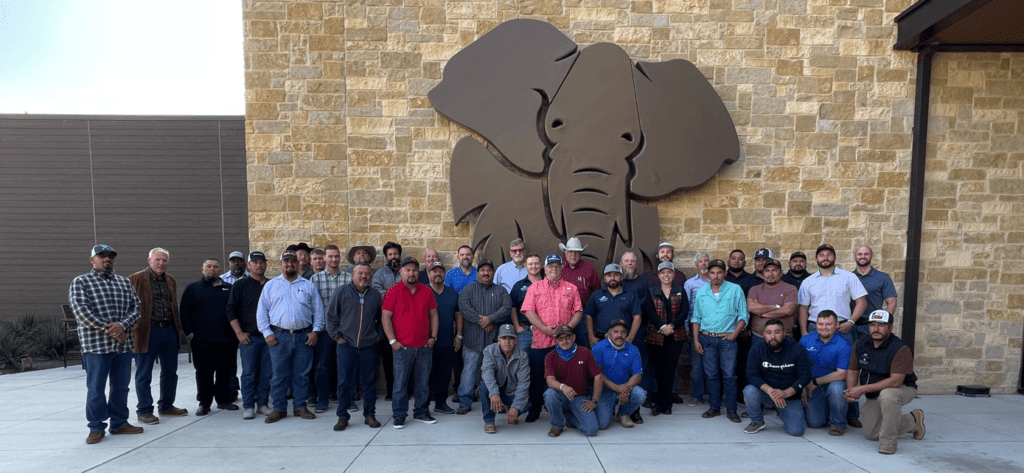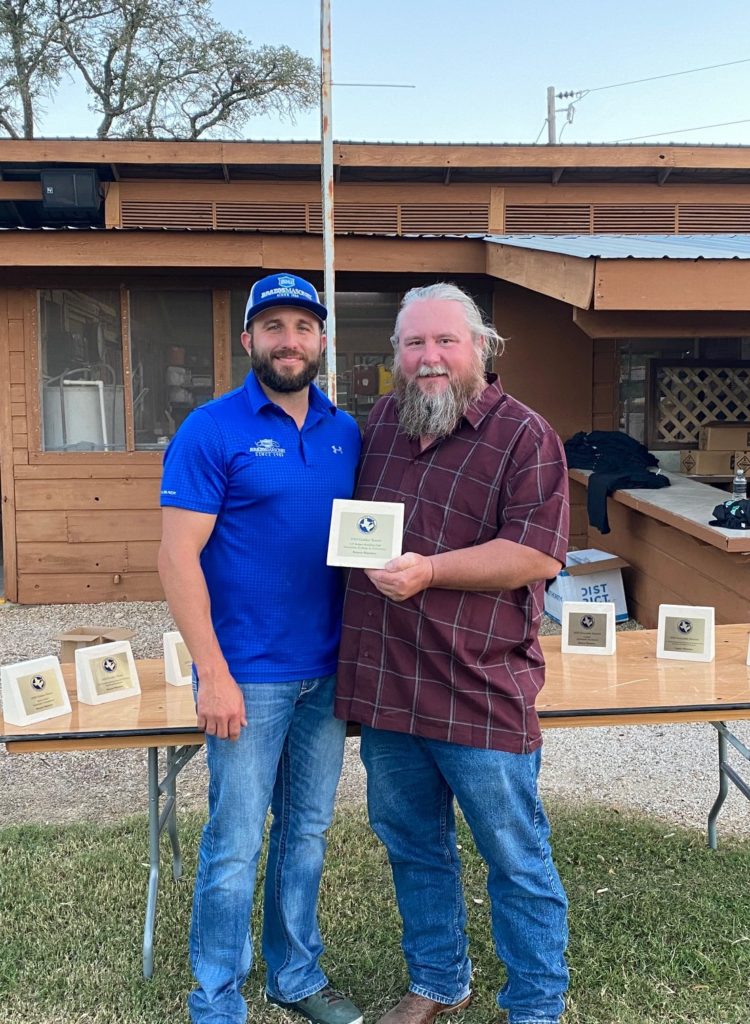Company Culture
Words: Kent Bounds
Words and Photos: Kent Bounds, Brazos Masonry President
When it comes to hiring the elite candidates or maintaining your current staff, culture is everything. Many individuals rank company culture as one of the most important factors when considering career opportunities. Company culture is a set of attitudes, values, beliefs, goals, and other characteristics a company or organization follows to create a gratifying work environment.
So when I think of company culture, I think of it as a foundation on which we can achieve our goals. Without starting on a firm foundation, how can success ever take place? We, as owners, need everyone to be able to understand our purpose and our drive clearly. We want individuals who are creative, productive, critical thinkers, and passionate about masonry. For individuals to have these traits, we must have an environment that will attract these bright minds.

Understand that from a young age, many workers have participated in organizations, schools, and sports that emphasize winning or losing as a team. What happens when these employees enter the workforce and enter your business structure with their systems of recognition, compensation, and promotions that are strictly based on individual personal performances? Let's be honest, in a work culture where employees are compensated and celebrated for their individual performance and contributions, there will be no teamwork. This action will instead breed a sense of competition among your employees.
To build teamwork into your work culture, you must fundamentally rethink how your business is structured. To the older generation, this may be backward. I have always been taught that competition is good for the soul. To this day, I am very competitive, especially when it comes to golf. Golf is one of the few sports where teamwork is seldom witnessed. Yes, a caddie and a professional golfer have chemistry, but there is no authentic team atmosphere. When a golfer is interviewed after winning, you seldom hear the mention of a caddie or sponsor or their training staff; it is all about their performance. Even the one conducting the interview only asks questions pertaining to the player's performance. So yes, competition is good, but we don't want our office functioning like the PGA Tour.
To be frank, we need to consider who we are working with today. Teamwork is more frequently found with millennial employees. Millennials grew up participating in an environment that encouraged collaboration. And yes, that would include participation trophies. These trends were continued in Generation Z, which follows closely after the millennials in this line of thinking.
As newer generations join the workforce and move up into management positions, their values start to influence the culture and expectations of the places they work. When I took over as President from Mackie several years back, everyone saw this. My goals, direction, and values were similar to Mackie's, but my management style shifted more away from the old-school contractor mentality.

As an example, we had a strategic meeting at Brazos Masonry. Where typically these are reserved just for upper management, I brought my entire management staff into this meeting. We had our entire accounting staff, general superintendents, safety, estimators, project managers, shop superintendent, and our receptionist. You might call me crazy, but I wanted our entire team to be brought into our future. I wanted each one to take ownership and know with all clarity where we were headed.
Encouraging a collaborative work environment takes more than just putting employees on teams or telling them to work together. Teamwork needs to become a valued part of your workplace culture, starting with us in ownership and then letting it trickle down into everyday interactions with your employees. You must back up words with action, or you will fail.
From this strategic meeting, there was a need to modify the mission and vision statement greatly. We had changed, and we needed a mission to truly represent who we have become. We wanted a way to reinforce our culture to our people and others. The awesome part of this process is that we empowered our people, not us owners, to describe our company culture. We would hear the true message of what was taking place from within.
Our new mission states:
"We elevate our people and projects beyond expectations." This totally encompasses our culture at Brazos Masonry. We, as owners, realize that we are only as good as our people. We know that if they are successful at work and in life, it will always move us in the correct direction. Our vision follows our mission, "To be the premier contractor of Texas, striving for excellence, developing our people, and changing the face of tomorrow." Once again, the focus goes to our people and then outward.

By doing this, we empower our people as a team to take ownership and go forth and conquer. We continually push for teamwork if the project is going well or facing challenges. No one completely owns the mistake or the success. Compensation, bonuses, and rewards are dependent on the success of the team. We share in the profits and the failures. No matter how great or bad, we stay calm, grateful, and humble. After the completion of each project, we meet as an entire team, including the field superintendent. We review safety, quality, schedule, customer, and profit. I know the field guys can be nervous, especially on a project that did not make a big profit. I generally start out those meetings by reinforcing that we are in this together. We will learn as a team from the failures of this project so we can be successful on future projects. On the flip side, we don't quickly skim through the meeting if the project was successful. We want to know why and how we can share the knowledge, so it's repeatable going forward. We must always encourage growth if we want to maintain our success. We, as executives and managers, must always be open and receptive to ideas and input from others on the team. Many of our changes have started from within. Always have an open line of communication.
I cannot reiterate enough the importance of promoting great company culture. As we wrap this up, remember that culture equals behavior. Culture is learned, and culture is learned through interaction. Your people will help shape culture, and culture will constantly be evolving. Changing your company's existing culture takes hard work, perseverance, and commitment. More than half of companies' struggles revolve around the ability to retain valuable employees. People are our number one complaint. So continually improving and maintaining great company culture isn't just for show; it is a matter of survival.